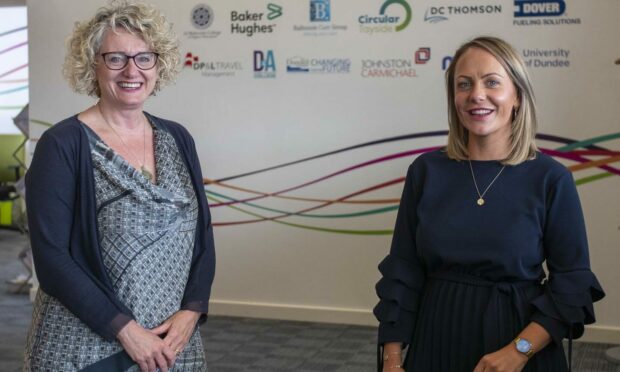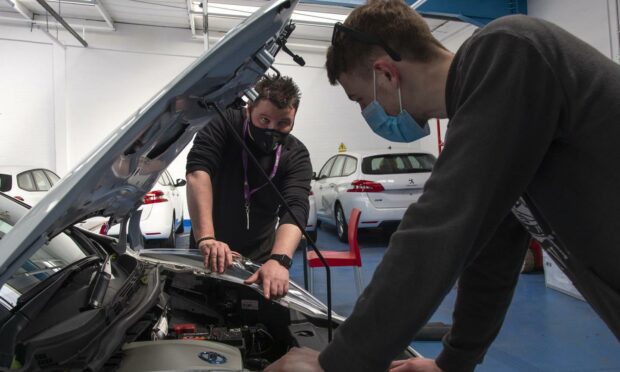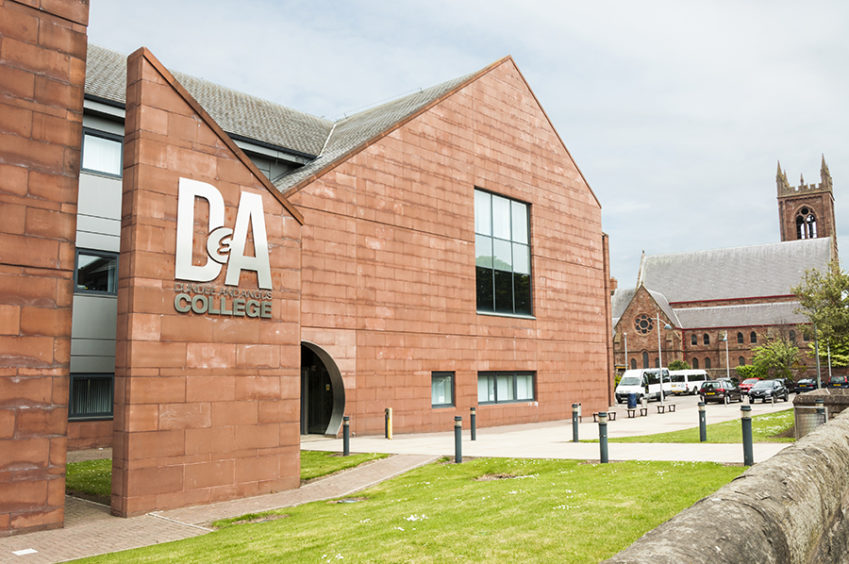A new Dundee and Angus College team will give local businesses a competitive edge as it unveils funding for training.
The college has secured almost £1 million from the Scottish Government Flexible Workforce Development Fund.
The fund gives levy-paying businesses access to up to £15,000 worth of training.
Small and medium-sized businesses are also eligible for training up to £5,000.
The new business partnerships team is visiting workplaces across the region to assess current and future skills gaps and training needs.
Helping businesses plan for the future
The four-person team is headed by the college’s economics partnership manager, Caryn Gibson.
The college has recruited 17 accredited trainers to help deliver business training across the region.
Ms Gibson believes the college and local businesses have to work together going forward.
She says: “Covid created opportunities for some businesses to diversify their offering, meaning their business models and plans have changed.
“It’s our duty as a college to help them plan for the future – analysing their needs, identifying the skills gaps and delivering the training required.”
“We are also working with larger companies who have in-house trainers, bolstering their programmes and adding value through our courses.”
With sectors and technologies continuously emerging, college staff are currently fine-tuning a raft of new qualifications.
These include subjects from wind turbines and low carbon transport to advanced manufacturing, insulation and solar panels.
Courses such as mental health first aid, leadership and digital marketing are also in the pipeline.
Training starting early next year
Training will be delivered between the Michelin Scotland Innovation Parc (MSIP) Skills Academy and the college’s Arbroath campus as of early 2022.
The training aims to close skills gaps by reskilling and upskilling in growing sectors such as digital, energy and renewables.
The college also wants to reskill workers to create more employees for struggling sectors, such as care and hospitality.
The college will also be offering a range of short, free courses for the general public.
Ms Gibson hopes the courses will enhance current careers or inspire the start of a new career for those unemployed.
She said: “We also need to reach out to those who are currently not working and shine a light on new subject areas to highlight their potential.
“This is a win-win for businesses too – we’re helping the unemployed by offering them the skills businesses need and giving them a stronger pipeline of local people who are ready to fill these skills gaps.”


